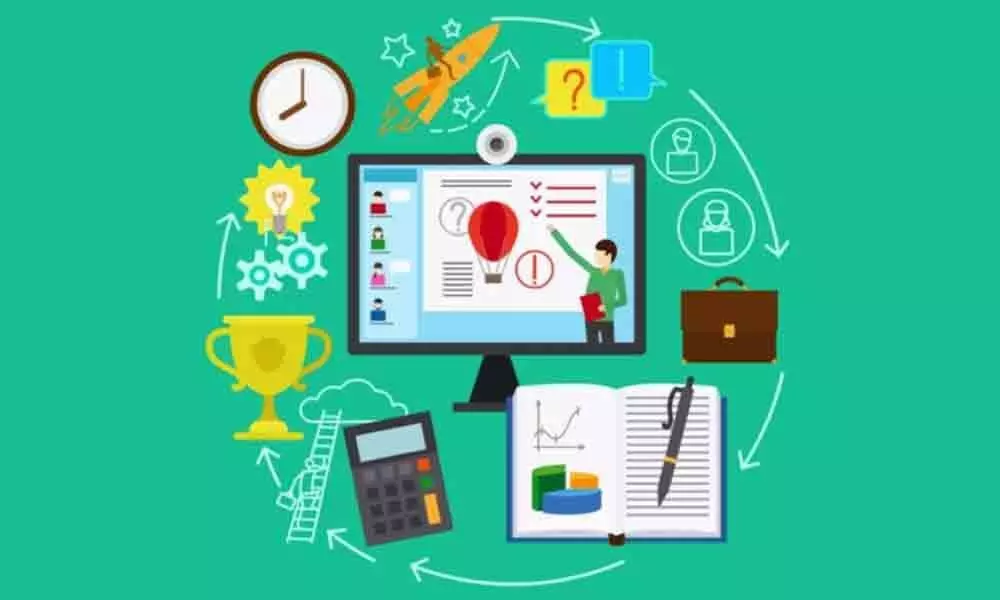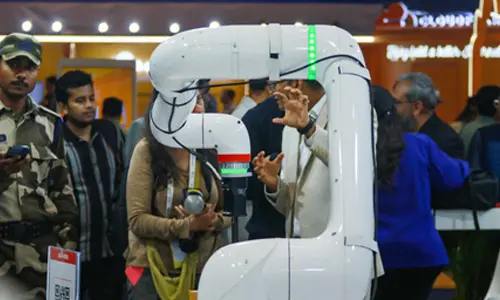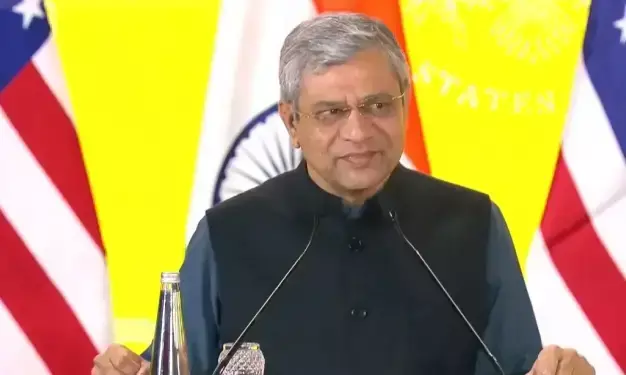E-learning transforming Indian education system

The innovative technological advancements in the field of digital education that include cloud-based platforms, ICT classrooms, Virtual Reality (VR), Augmented Reality (AR), and others are no more luxuries in India.
The innovative technological advancements in the field of digital education that include cloud-based platforms, ICT classrooms, Virtual Reality (VR), Augmented Reality (AR), and others are no more luxuries in India.
These digital tools and their implementation have become necessities in schools to overcome the theory-based learning to a more practical-oriented one. The growing demand for digital education in India has been increasing over past few years, now over 1.5 million schools and 18,000 higher education institutes are connected with E-learning and even online leaning is affordable and accessible in rural areas of India.
UGC has permitted higher educational institutions to offer Certificate, Diploma, and Degree Programmes in online mode to the students in the University Grants Commission (Online Courses) Regulations, 2018. With such a reform, it is evident that the benefits served by online learning have convinced even the government to take relevant actions for its betterment.
Accessibility
The advent of education-technology has made the learning process easier for students, as it is providing efficient pedagogical training through 'Direct to Device' such as internet-connected computers, tablets, and smartphone, which are empowering students to study through any device at any time.
An innovative aspect of online learning is M-learning where students can access the training content and learn more advanced skills such as machine learning and artificial intelligence on their mobile phones anywhere.
Generally, online training platforms deliver content which features a combination of text, demonstrative videos, and presentations. Students' doubts are also cleared through forum query/doubt solving box, avoiding students' dependence on teachers. Now the accessibility has reached to the rural areas of the country, where teachers hesitate to enter because of less remuneration. Not only students but even working professionals are benefitting from online trainings as they can upskill and explore new skills along with their existing job and other responsibilities.
The Union Ministry of Human Resources and Development as well as the skill development bodies of different Indian states have started to upload lectures online so that students can access them anytime and anywhere.
Now, attendance marked on the teacher's register is not essential to get a job; however, 100% skilled is the pre-requisite for the same. E-learning ensures uniformity in the syllabus so that global disparities can be narrowed down.
Artificial Intelligence, machine learning, & big data
The E-learning with help of Artificial Intelligence (AI) is on the verge of a paradigm shift. Even Machine learning (M-learning) is gaining traction to enhance the quality of education in students. In fact M- learning has reduced the actual time taken by a student with respect to the average time taken in answering a specific question and enhances the ability of a student in answering the question correctly.
The machine learning handcrafts the effective approach of education as well as course progression of a student.
In case of Big Data, it is also employed to analyze the collated data and bring out the core and additional insights. It further helps the education tech platforms to accurately create student profiles and consequently customize their styles of teaching in accordance with the most effective pedagogical model.
Content Distribution Networks (CDNs)
It is the latest technological advancement incorporated in the e-learning industry. Video re-buffering stops 2/3rd of the viewers from watching a video. Buffering makes online viewers stop watching videos. Content Distribution Networks address this problem. With CDNs, buffering of videos can be ironed out as the content is served to the user from the nearest located data center, providing students get unhindered view of the video.
Quality education
According to MHRD report of 2017, some Indian schools don't have the required number of teachers and high student to teacher ratio is adversely affecting the education quality. While the teachers can't provide personalized focus on each student in the classroom, the students can't utilize their time spent in the classroom fully and qualitatively.
In such case, online learning has become so effective in providing quality education. E-learning facilities also help students get personalized tips from professors and professionals, bringing quality education to students.
E-learning is also making the entire learning experience fun-filled by including quizzes, challenges, practical-oriented, and engaging. In fact, the online education facility is more engaging than classroom learning.
Affordability
The biggest issue that students face in India is the lack of opportunities and resources. Parents have to shell out large amount of money to provide quality education to their children, right from school to college. While some of them discontinue their studies due to monetary issues, others quit as they cannot find desired courses within their cities. However, the students who are interested to learn in-demand courses such as data science, Python, machine learning, etc. usually face difficulty as traditional coaching centres aren't well equipped to teach such courses and the cost associated with higher education at traditional brick-and-mortar colleges are significantly higher than the one-time cost associated with online learning.
Relocating to another city for study requires economic stability which everyone does not possess. Therefore, with the advent of e-learning resources, students can access education at a much lower cost and cam avoid what they have to pay for books, parking, infrastructure, practical labs, and equipment. Containing various modules and interactive forms of audio-visual teaching, online trainings have simplified the overall learning journey.
While being affordable and accessible, e-learning allows students to save more hours, instills a feeling of self-belief, and encourages them to learn with the purpose of acquiring job-specific skills. E-learning courses help the students to get employed after successfully completing their education.








